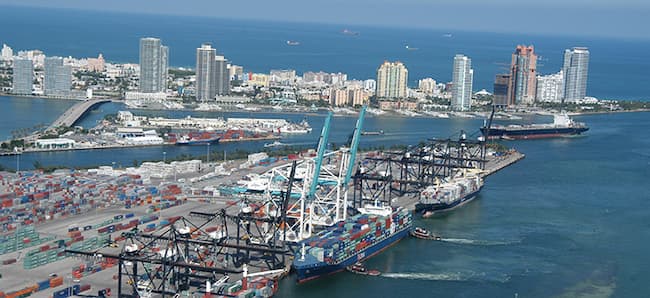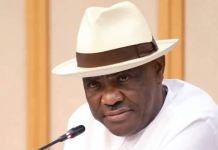It is possible that the federal government will need to invest roughly $7.2 billion to build the two authorized deep seaports in the nation. Ibom, Badagry, and Deep Seaports are the projects in question.
The federal government granted $2.016 billion for the first phase of the $4.6 billion Ibom Deep Seaport, according to the Akwa Ibom State Government in December 2020. Akan Okon, the IDSP and Akwa-Ibom State Commissioner for Economic Development at the time, made this revelation in Uyo.
He stated that on December 16, 2020, the Federal Executive Council gave its approval for the first phase of the IDSP to be implemented. He also claimed that the port would help Akwa Ibom’s unemployment problems and allow the state to carry out programs aimed at reducing poverty and creating jobs.
According to Okon, upon completion of the project, it is expected to generate no fewer than 300,000 jobs in Akwa Ibom.
2.016 billion,“Akwa Ibom is industrialised because this project, when operational, would solve and arrest critical problems in the state, especially the issue of unemployment, and then stimulate our state economy accordingly. The total cost of construction of the Ibom Deep Seaport is $4.6 billion, but the first phase of it is $2.016 billion, which was approved on Wednesday, December 16, by the Federal Government,” Okon said.
2.59 billion andOn March 1, 2022, the Lagos State Governor, Babajide Sanwo-Olu, announced that the Badagry Deep Seaport project, estimated at $2.59 billion and expected to be one of the largest in Africa, would kick off in June.
Sanwo-Olu said this in Badagry during a stakeholders’ meeting on the Badagry Deep Seaport and Free Zone Project.
The plan to begin construction of the seaport, which will be hosted by 12 communities in Badagry, came after 10 years of conceiving the idea in 2012, during the administration of former Governor Babatunde Fashola.
According to Sanwo-Olu, the Badagry Deep Seaport Project is not just one project but a multi-level opportunity for progress for all the people of the state, given the volume of trade and quantum of investment opportunities that would spring up in the area when the project commences and when it is completed and operational.
“Very importantly, employment and capacity building for the teeming youth and women in the affected communities will be prioritised. When fully operational, it will not only boost the fortunes of the people of Badagry but also transform the entire economy of our state and that of the entire West African sub-region,” he said.
Meanwhile, stakeholders have said that the broader implications of those unfinished projects are substantial, expressing frustration over the lack of progress.
The President of the National Association of Master Mariners, Captain Tajudeen Alao, noted that the country did not need many deep seaports but smart ports.
He said that the country needed a few deep seaports and the use of feeder vessels to other ports.
“How much import and export are we planning for? We need to rethink so that we don’t have redundant ports like Sapele, Koko, and Calabar,” he stated.
According to Alao, if the country can establish integrated evacuation logistics (rail, road, and barges) and provide constant security,
“We need to get a transport policy in place and short-, medium-, and long-term strategies,” he posited.
A master mariner, Captain Adewale Ishola, added, “They have all done their visibility studies, with the NPA also going into approving their plans. Projects like this require capital. So, if they are not serious, investors will not show interest in the projects.”
According to Captain Ogunshakin Rotimi-William, those projects are capital intensive and at the moment, the Federal Government has so many projects at hand.
“Those deep seaports are very important because some vessels can’t come in because of the depth of the sea. But if they have these seaports, it will create more jobs for those small vessels and seafarers. So, the reasons that seem to have stalled the projects may be because of finance and political interest. Some politicians would be asking why they didn’t come to do it in my area,” he postulated.
















